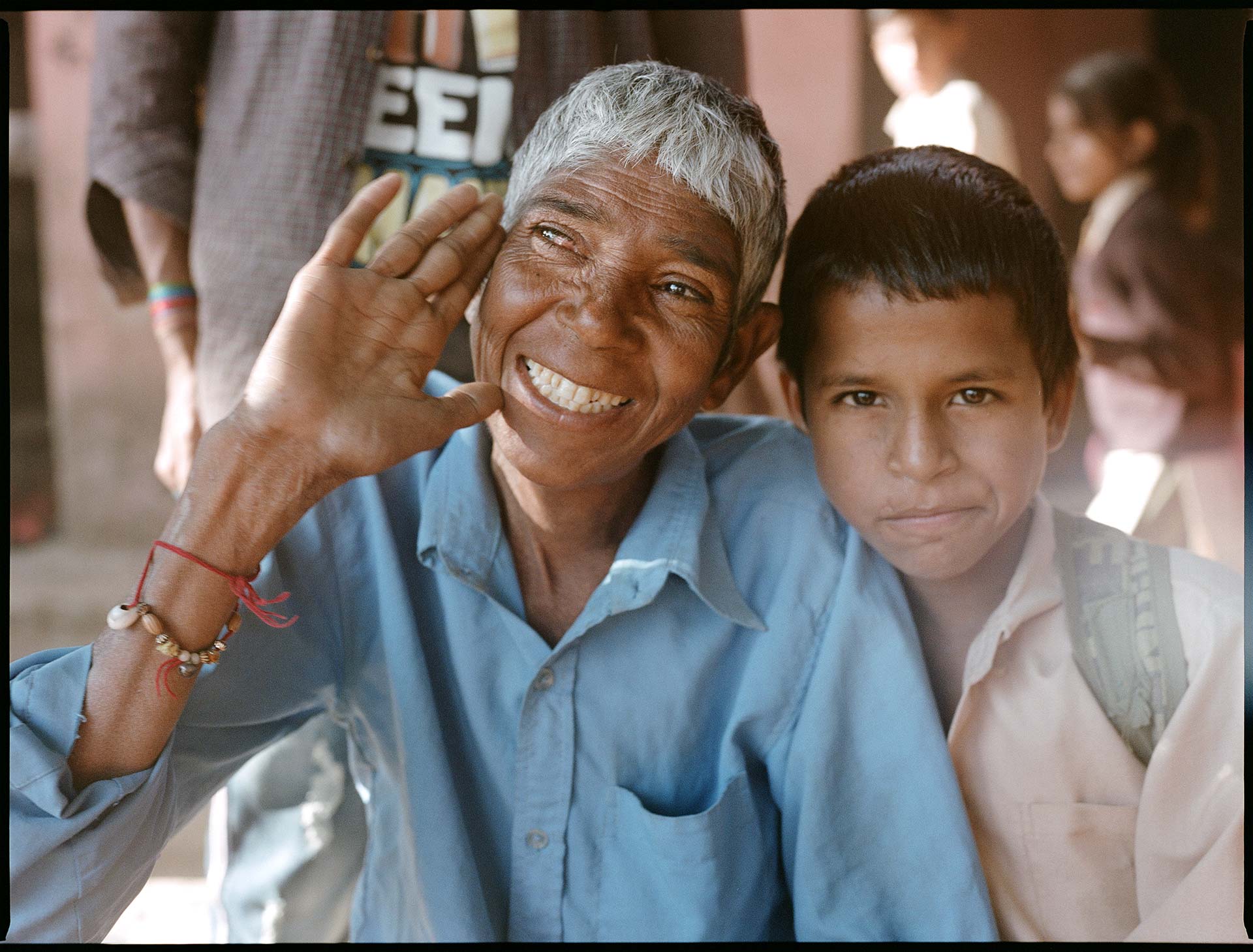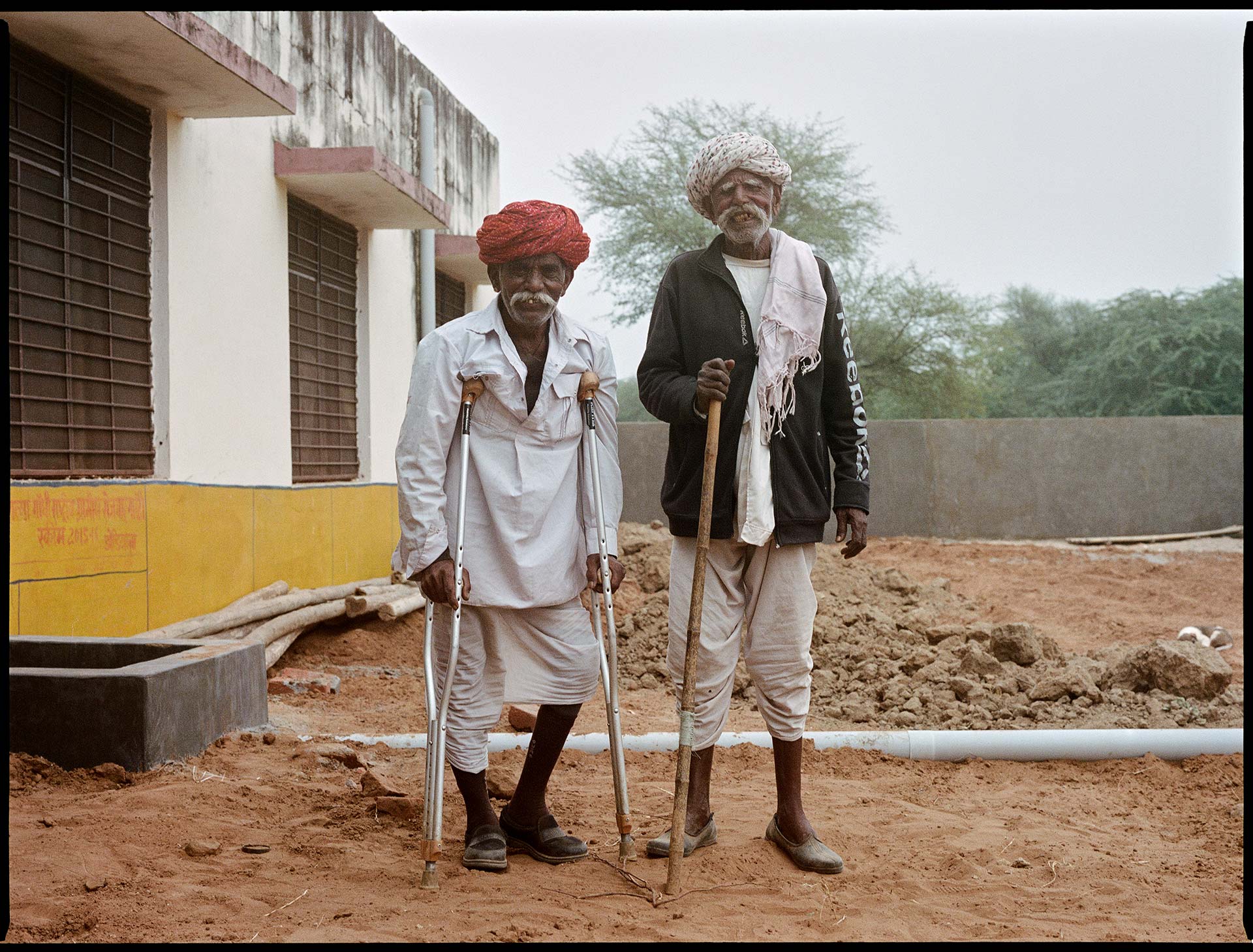The Empowerment
of Disability
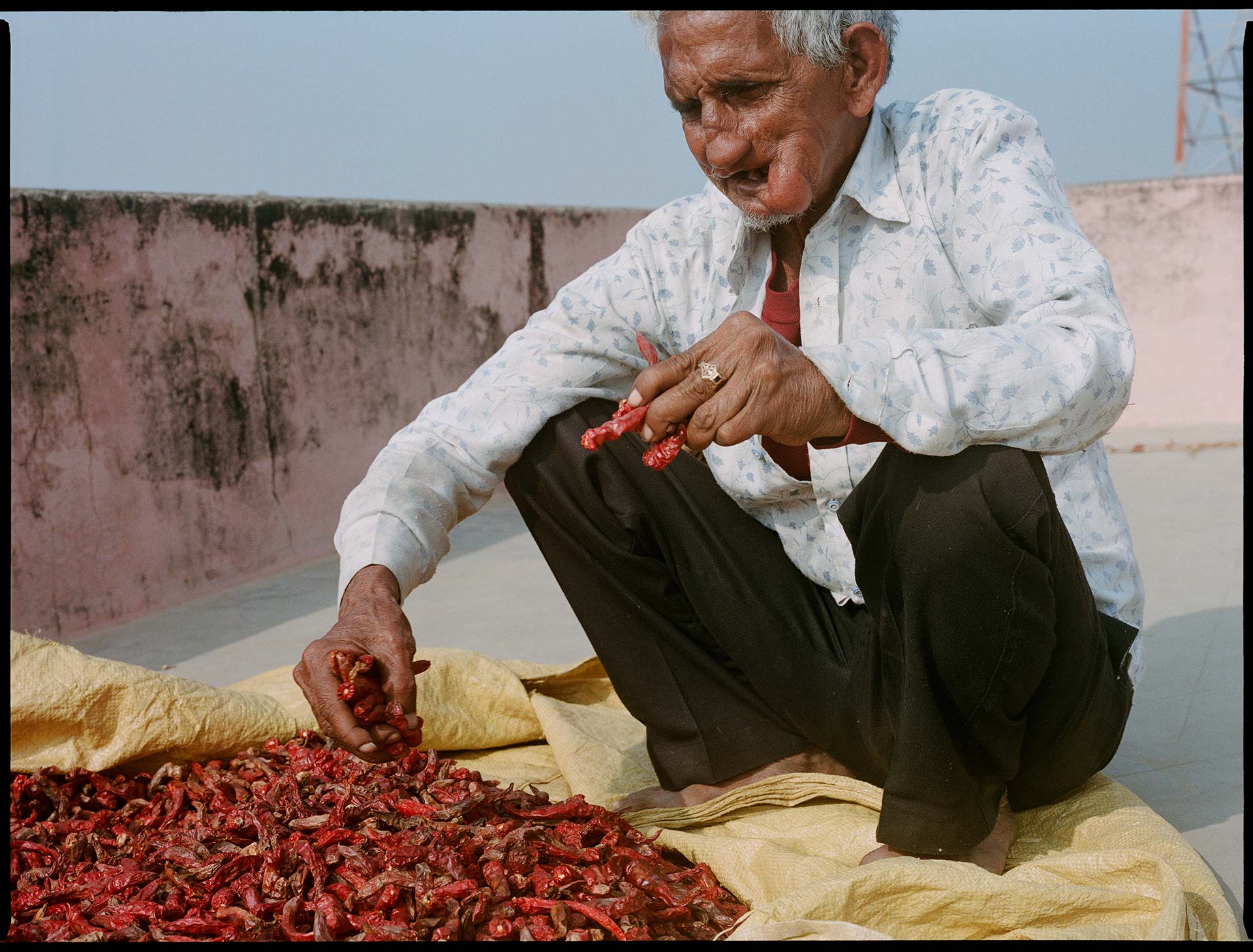
Photography
Raquel Vieira da Silva
Raquel Vieira da Silva
Community Partner
RSKS India
RSKS India
In India, poverty and disability are both a cause and consequence of each other. People with disabilities tend to marry other disabled people, often resulting in a circle of poverty. Unable to work due to their health, these people are likely to hold fewer assets, and often incur great medical debts. Also being from a poor community has made their disabilities even harder to live with. People with disabilities struggle to get their rights fulfilled and their voices heard by society. Often they don’t hold birth certificates, making it hard to be recognised as citizens and getting access to health care.
The aim of this body of work is to uncover hidden realities (not so hidden in India) and to open a dialogue around the significance of the caste system which still overpowers India.
A photograph becomes a space to be inhabited and shaped, not only through meaning but also by the sheer physical presence within its borders, acknowledging existence and life.
The aim of this body of work is to uncover hidden realities (not so hidden in India) and to open a dialogue around the significance of the caste system which still overpowers India.
A photograph becomes a space to be inhabited and shaped, not only through meaning but also by the sheer physical presence within its borders, acknowledging existence and life.
‘Everyday, since I am 5 years old, I have to walk with my hands on the floor. It is something very hard for me and makes me feel disgusted.’
Geeta, 40, mother of two girls and one boy

When Getta was only 5 years of age, she had polio, which is an infectious disease that causes muscle weakness, resulting in an inability or difficulty to move. Because of polio, Getta cannot move her legs. Also, later on in life, after giving birth to her second daughter, Geeta developed breast cancer, leaving her deformed and scarred both physically and emotionally. After only 11 months of having her breast removed, she found out that she had stones in her stomach, followed by an appendix infection and surgery right after.
Her husband is 60 years old and is not able to help around nor provide for their livelihood. His backbone is fractured and damaged after falling off a tree, whilst cutting some branches that he intended to use to cook and keep warm at night. He was rendered useless after this event and is unable to contribute to his family's livelihood.
Her husband is 60 years old and is not able to help around nor provide for their livelihood. His backbone is fractured and damaged after falling off a tree, whilst cutting some branches that he intended to use to cook and keep warm at night. He was rendered useless after this event and is unable to contribute to his family's livelihood.
‘I have always wanted to walk with my own legs, but I can’t, so I cry everyday for being like this.’
Geeta, 40
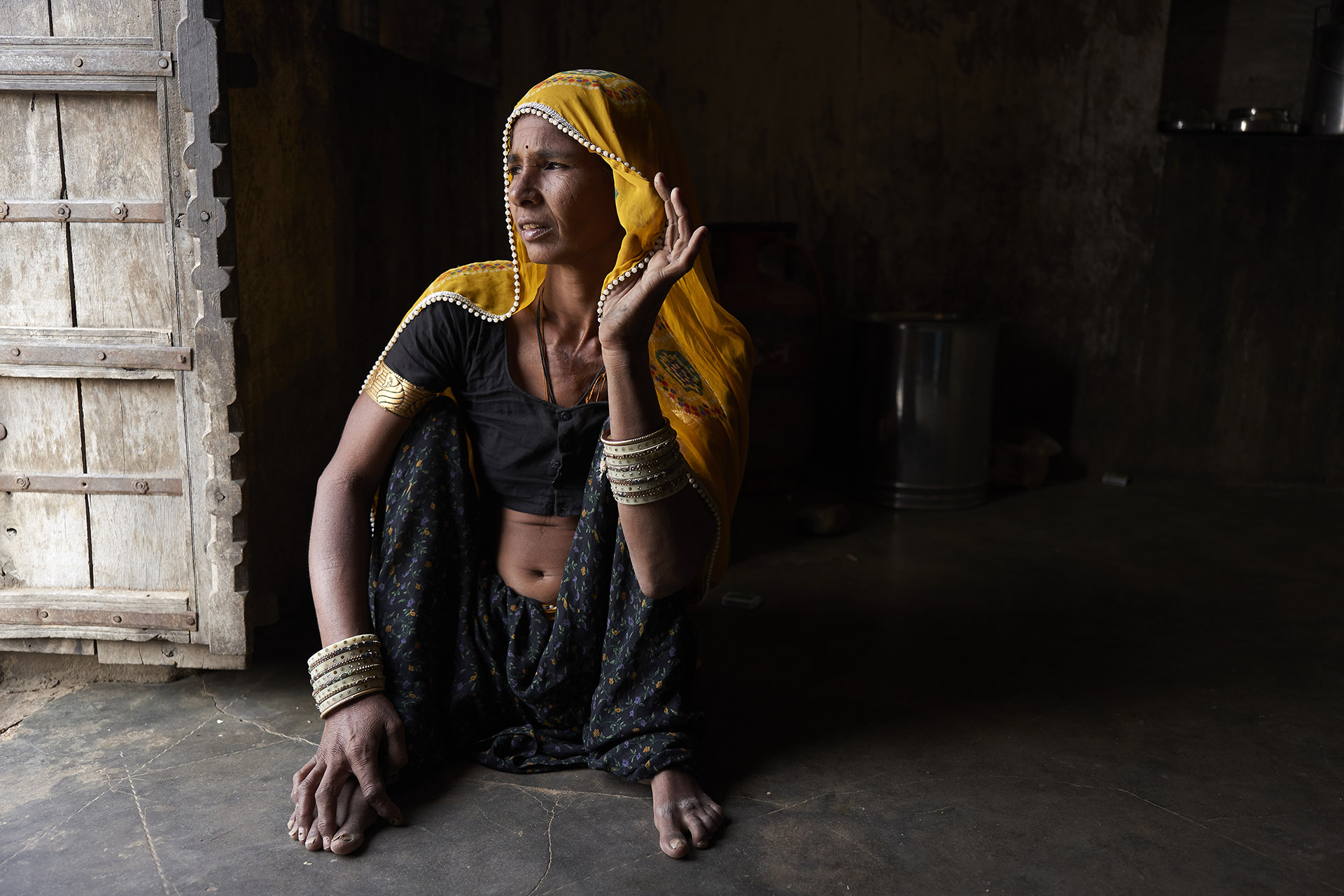
‘I face many issues. One of them is a constant stomach ache that doesn’t go away. Because of this, I cannot work, but still, I need to feed my children, so I try to cook their meals. Every month I have to visit a doctor, but the medical expenses are too high and I am not able to afford them. Still, if I don’t pay them, I die. And then who will take care of my children?
So in order to pay for my medical expenses, I have to beg in front of my village people.I don't have food to eat nor water to irrigate my land. I only have two goats, and three children, whom I have to feed. And so far, I am struggling to do that.My disability killed my entire dreams and my life.
So in order to pay for my medical expenses, I have to beg in front of my village people.I don't have food to eat nor water to irrigate my land. I only have two goats, and three children, whom I have to feed. And so far, I am struggling to do that.My disability killed my entire dreams and my life.
RSKS India creates focus groups and meetings with several people suffering from disabilities in my village. Unfortunately I can’t attend those, so instead, RSKS India visits me at my house twice a month. They ask about my problems and look for solutions in order to help me with my disabilities, such as providing me with a disability card from the government. They always motivate me and tell me to not see my disability as a problem.’
‘I cannot go anywhere as people get scared when they see me.’
Suraj, 69

Suraj, 69, suffers from both a fractured hand and fractured leg, as well as the evident face deformation due to a gas explosion more than three decades ago.
Suraj’s wife, a farmer, is the only provider in his family. Suraj says his days are spent looking at her from a distance, while his heart suffers from not being able to help her with the physical agriculture work. Together, they have four children: three boys and one girl.
Suraj suffers from both a fractured hand and fractured leg, as well as the evident face deformation due to a gas explosion more than three decades ago.
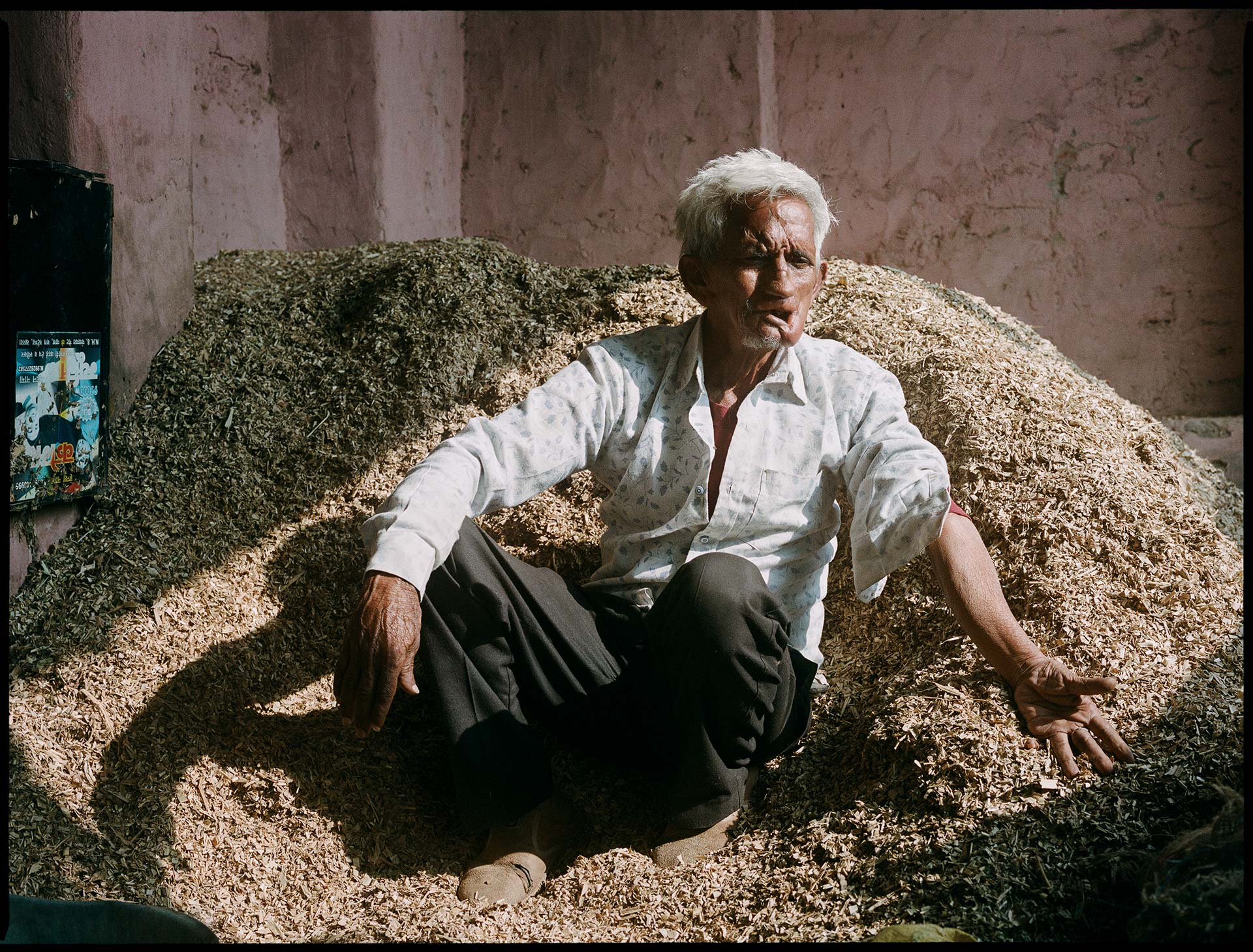
‘I have problems eating and drinking, I cannot chew nor hold any liquids in my mouth. I feel so ashamed when people look at me with their eyes full of disgrace. Because of this, I don't go out. I prefer to stay home and help my family in whatever I can. Small things, like feeding the goat. Whenever people look at my face, they always ask me "is it because of cancer?” It always takes 10 minutes to make them understand that my disability is not caused by cancer. Even doctors ask me the same question whenever I go for a check-up.
The reality is that this happened to me when I was 34 years old. I was in Ajmer that day, looking for a job. I was sitting near a tea selling vendor when the gas tank from the tea making vendor blasted. After that, I lost my consciousness. When I woke up, 8 days later, I was in so much pain. My face felt like it was burning and I could no longer move my arm and leg.
The reality is that this happened to me when I was 34 years old. I was in Ajmer that day, looking for a job. I was sitting near a tea selling vendor when the gas tank from the tea making vendor blasted. After that, I lost my consciousness. When I woke up, 8 days later, I was in so much pain. My face felt like it was burning and I could no longer move my arm and leg.
I underwent many operations for 3 years, and that ended up costing me my house, my animals and my land too. My family had to sell everything as they had to cover for my medical expenses. My family and children have always supported me throughout the years and I feel that is the reason why I am still alive today. For three years I did nothing but sit, I felt like a beggar.
Everyday I still have to cover my face with a muffler. People stare and feel gross when they look at my face. I want to be able to talk to people and they should react normally whenever they see me, but they don’t.’
Everyday I still have to cover my face with a muffler. People stare and feel gross when they look at my face. I want to be able to talk to people and they should react normally whenever they see me, but they don’t.’
‘Every joy I ever wanted in my life is in black colour.’
Manju, 55
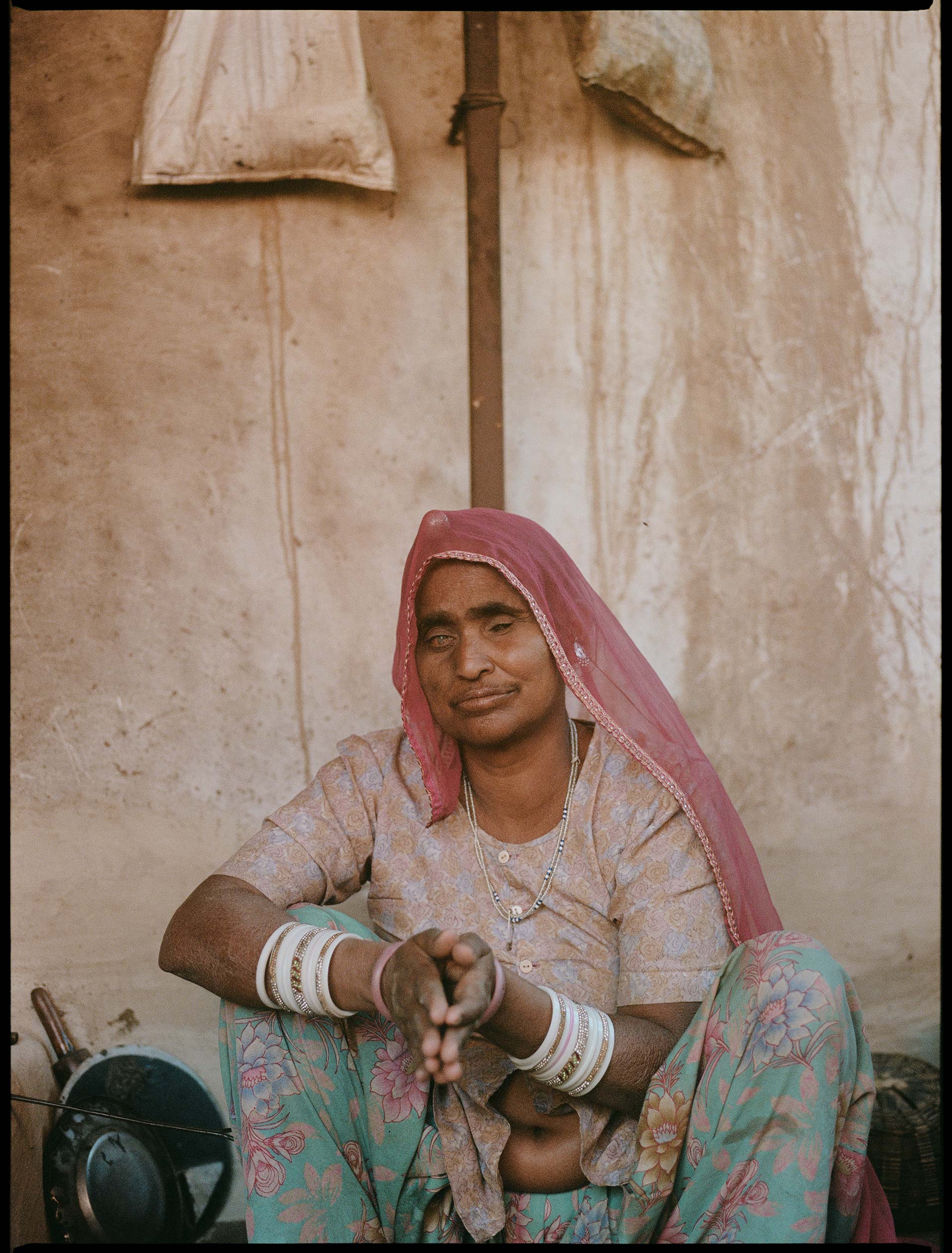
Manju is 55 years old and blind. She was married once, but her husband left her after only 2 years of marriage, as he couldn’t bear her disability. She doesn’t have any children because of this. Her disability doesn’t stop her from taking care of herself. She cleans utensils for a living, cooks her own food, and cleans her house and surroundings on a daily basis.
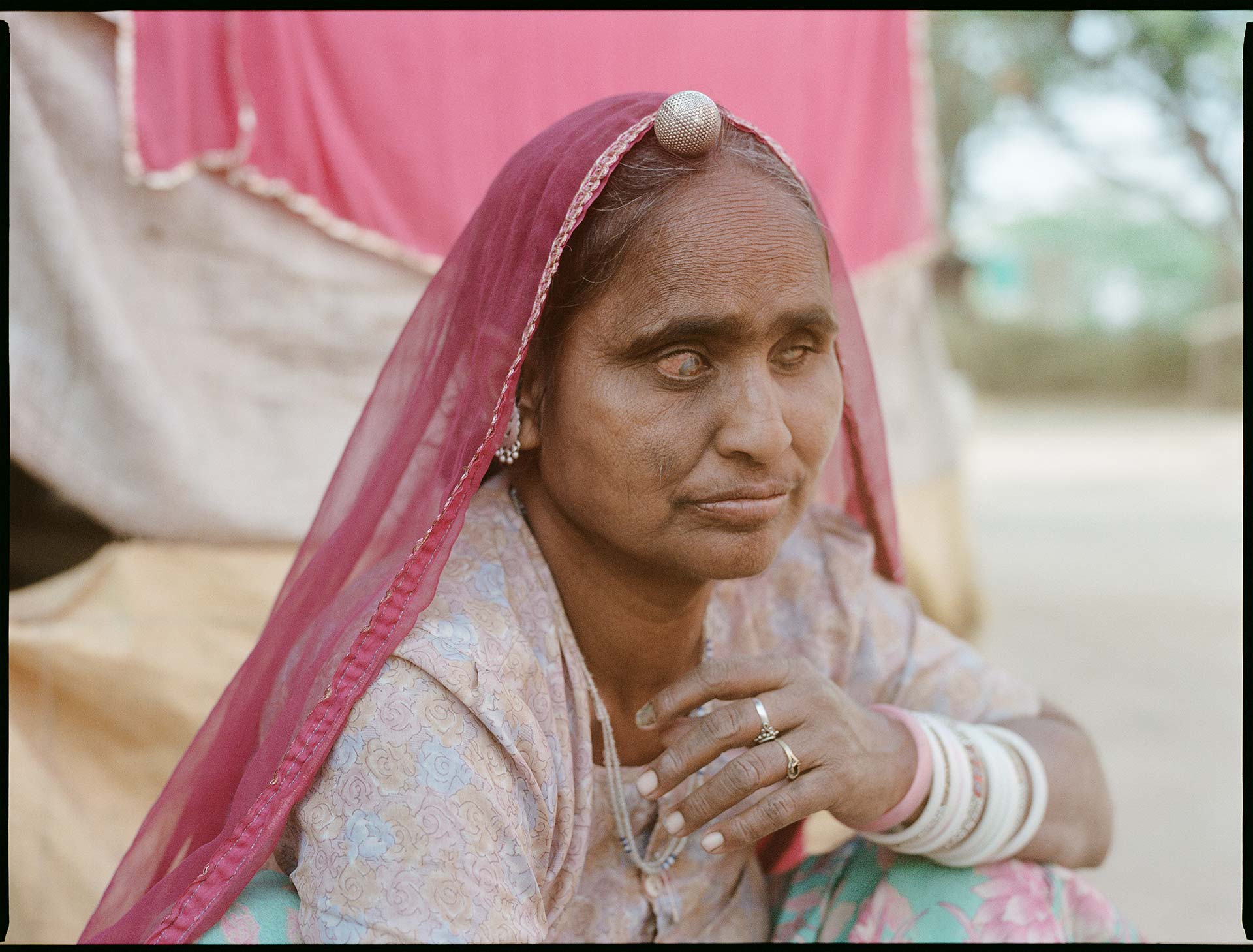
‘When I was only two month old, my parents took me to the doctor and he confirmed I was blind. My parents took me to every possible doctor to find a cause and possible cure, but they all said the same.
My father died when I was 13 years old, so my mother raised me. She took care of me and did lots of things to make me happy, such as finding me a husband so I could marry. But I was doomed and couldn’t escape this blindness.
If I want to use the washroom, I have to go out in the fields and I feel ashamed because of that.
My father died when I was 13 years old, so my mother raised me. She took care of me and did lots of things to make me happy, such as finding me a husband so I could marry. But I was doomed and couldn’t escape this blindness.
If I want to use the washroom, I have to go out in the fields and I feel ashamed because of that.
I was never recognised by the government as people, so I never had the right to a pension up until now. As a result of RSKS help and effort to get me my disability card, I am now fortunate to be receiving a pension of ₹750. I never had the chance to meet other disabled people from my village before, but RSKS team members have taken me and introduced me to them, so now I can be with my kind of people.
Everyday it is dark for me, but I do not wish this same darkness for other disabled people like me.’
Everyday it is dark for me, but I do not wish this same darkness for other disabled people like me.’
‘Me and my husband are handicap but we always helped each other throughout our life. We are a team, and together we can face anything.’
Mahima 38
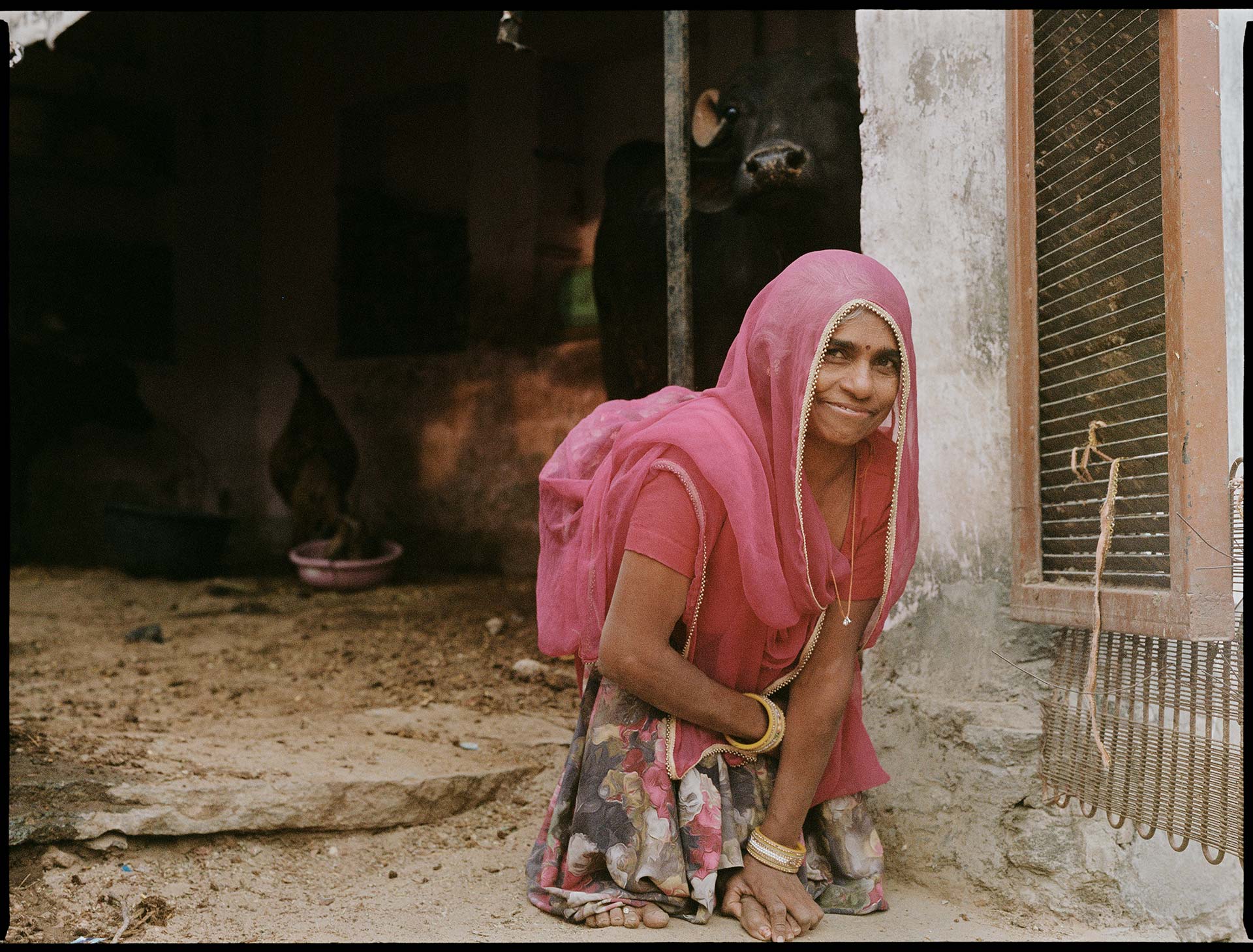
Mahima, 38 suffers from polio, or infantile paralysis, which is an infectious disease which causes muscle weakness resulting in an inability to move.
Poverty and disability are both a cause and consequence of each other. In India, people with disabilities tend to marry other disabled people, often resulting in a circle of poverty. Unable to work due to their health, these people are likely to hold fewer assets, and often incur great medical debts. Also being from a poor community has made their disabilities even harder to live with. People like Kanta Devi and her husband are unable to be recognised as citizens and consequently are impeded of accessing health care, they are constantly poorly nourished and usually live in unsafe environments, which all aggravates their already living conditions.

Mahima 38, and her husband Raj
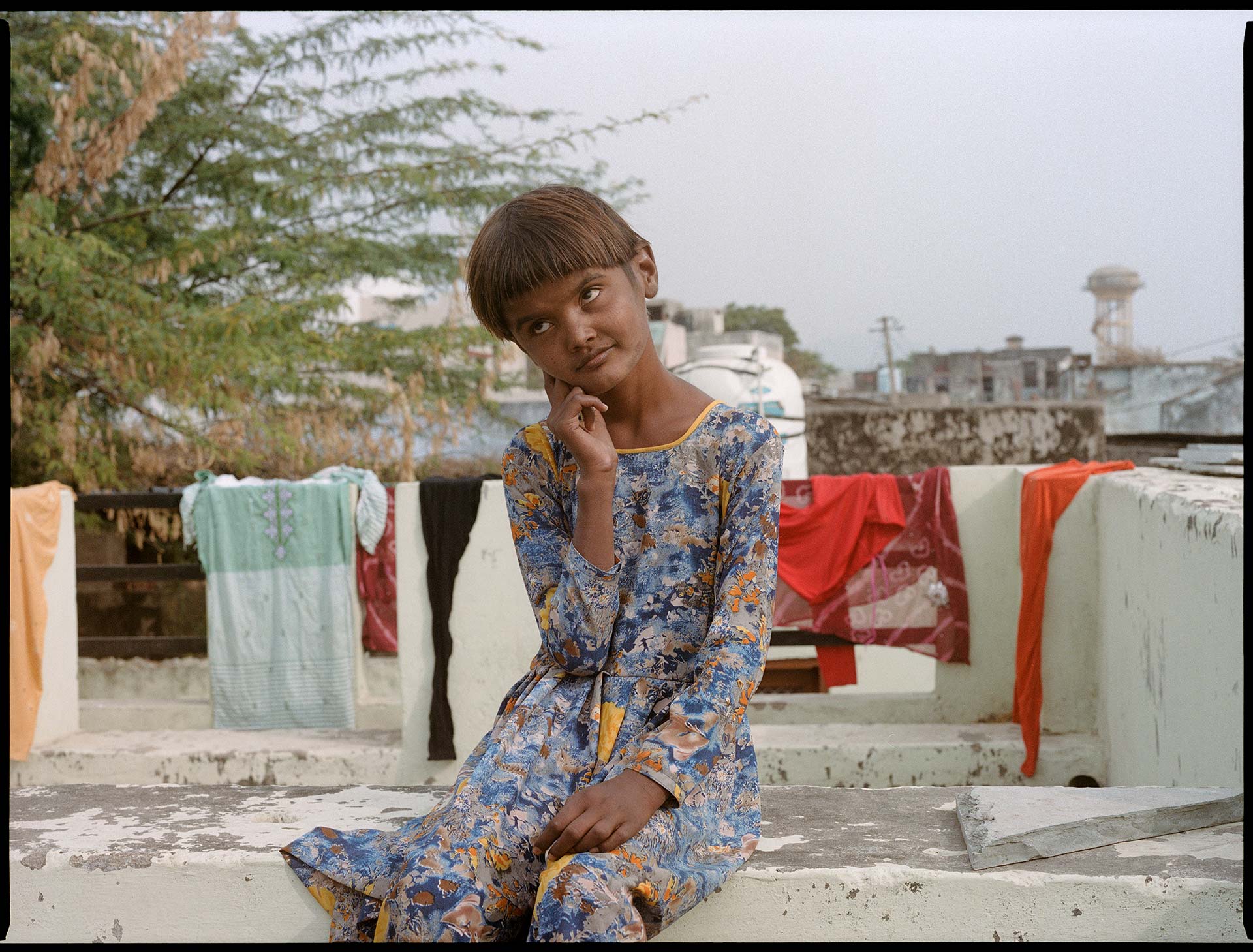
Champa is 13 years old and she is deaf and mute since she was a baby. Her parents tried many times to find a school who would accept her, but they all said they couldn’t because of her disabilities. Not able to live like a normal child and deprived of an education, Champa struggles to live a normal life and consequently suffers from mental illness.
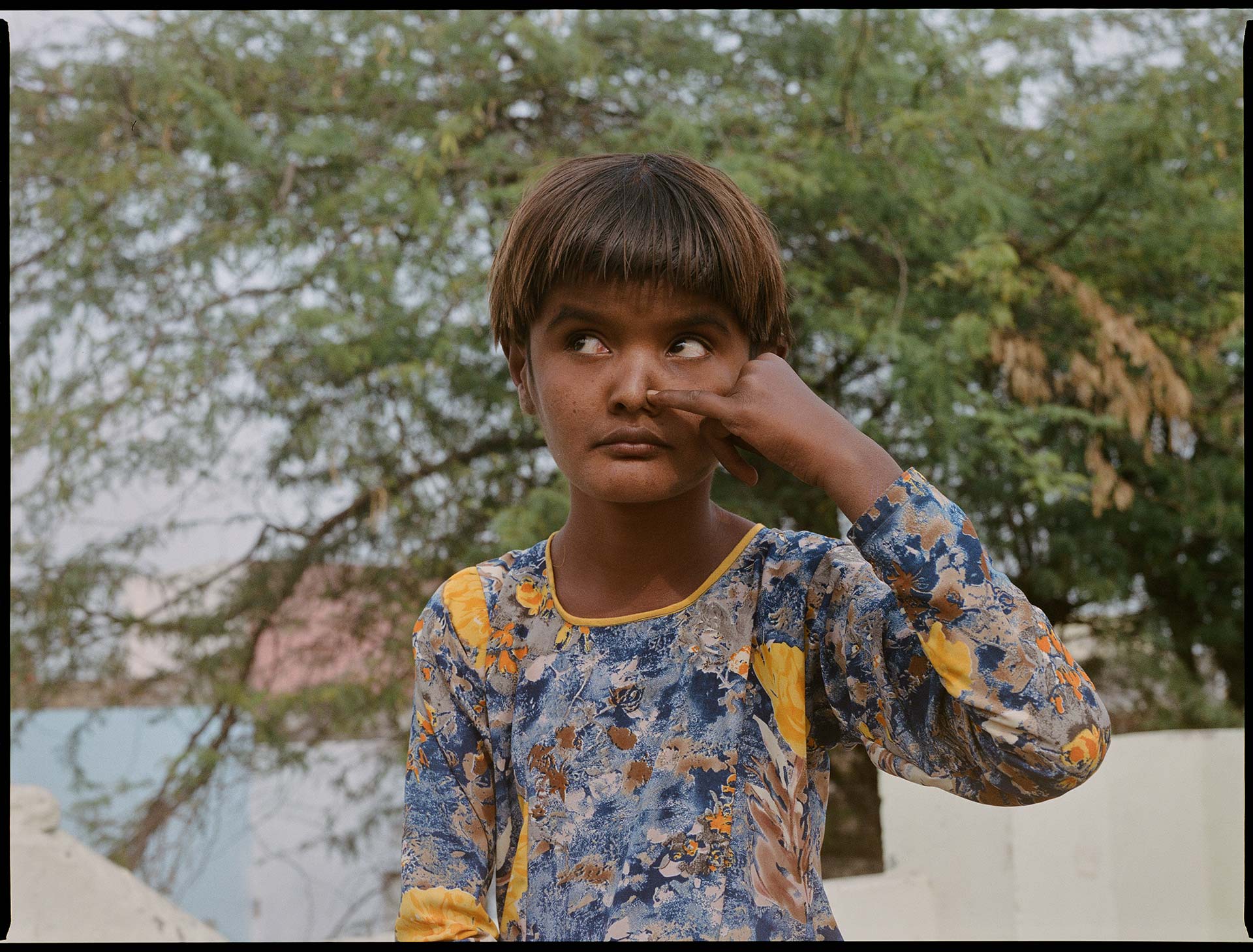
Her parents care deeply for her and are very saddened she is not able to get a disability certificate from the government. They are concerned when they die, she won’t have anyone to care for her.
‘I have a big family and it is hard for me to provide food to all of my children. What I always had was hope, and I am sure me and my children are alive only because of that. The only way to overcome our problems is by facing them and never giving up.’
Khushbo, 60
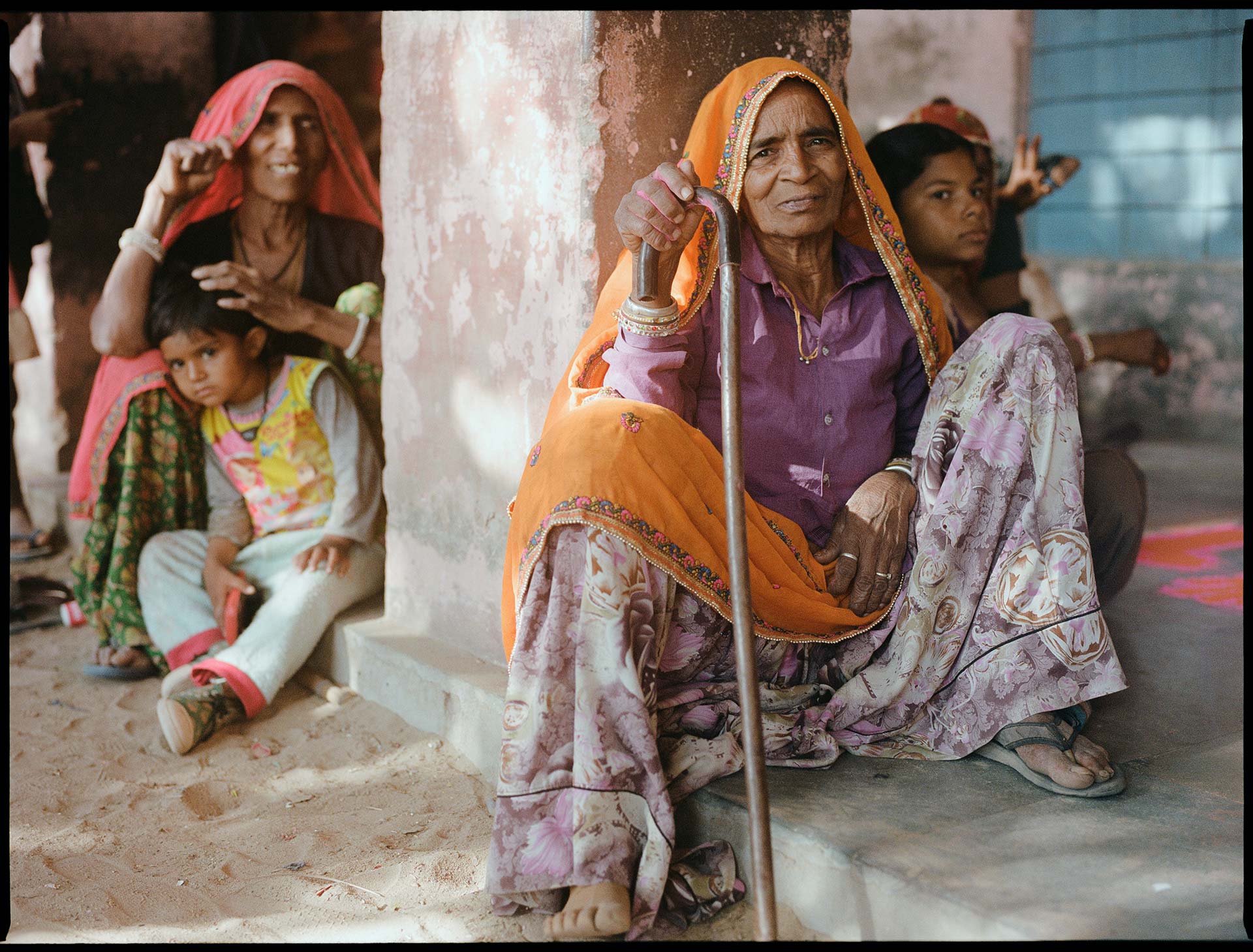
Khushbo is 60 year old and she has 9 children, 6 girls and 3 boys. Her life is difficult as she doesn’t have one leg and her arm is paralysed. Khushbo owns a small grocery shop in her village, which she doesn’t make much money from.
When she was 32 years old, she had a train accident.
One day, she was crossing a train track whilst carrying her daughter on her arms, when she suddenly saw a train approaching. Stunned and in shock, she fainted, losing her leg in the aftermath.
‘Children With Special Needs as well as our village people, literally, have no one who cares for them. But you (RSKS), have done so much.’
Principal of a Governmental School in Ajmer
 Girl holding a proud drawing that she made during a workshop to celebrate Disability day.
Girl holding a proud drawing that she made during a workshop to celebrate Disability day.In one of my trips, I visited a government school. I spent the afternoon with the children who were celebrating disability day by creating drawings and posters. People from the village also came to visit and disabled people from other RSKS programmes were also happy to come to support RSKS and the children in the promotion of equality and human rights.
It was a sunny day and there were so many activities, games and awards for the children. The joy on their faces was more than obvious. Needless to say that these children are used to having less than nothing in their lives. No money, no nutrition, often raised in a violent environment due to their parents’ illiteracy or alcoholism, these are kids who feel grateful for the opportunity of belonging to a good school and receive a proper education.
Although what really took me to tears was the moment I sat down with the principle of the school and she told me these words:
It was a sunny day and there were so many activities, games and awards for the children. The joy on their faces was more than obvious. Needless to say that these children are used to having less than nothing in their lives. No money, no nutrition, often raised in a violent environment due to their parents’ illiteracy or alcoholism, these are kids who feel grateful for the opportunity of belonging to a good school and receive a proper education.
Although what really took me to tears was the moment I sat down with the principle of the school and she told me these words:
These programmes from RSKS are of the utmost importance as they will create thriving futures and open doors to so many children in India. I hope one day day these children can be positively influenced by these actions and become activists and help many others like them.
‘I thank RSKS India for coming here and giving so much to the children, so much happiness to my school children. CWSN (Children With Special Needs) and village people, literally, no one cares for them. But you have done so much. I am heartily thankful for my school staff as well as myself, and I am grateful for all of you who are doing so much.’
School Principal
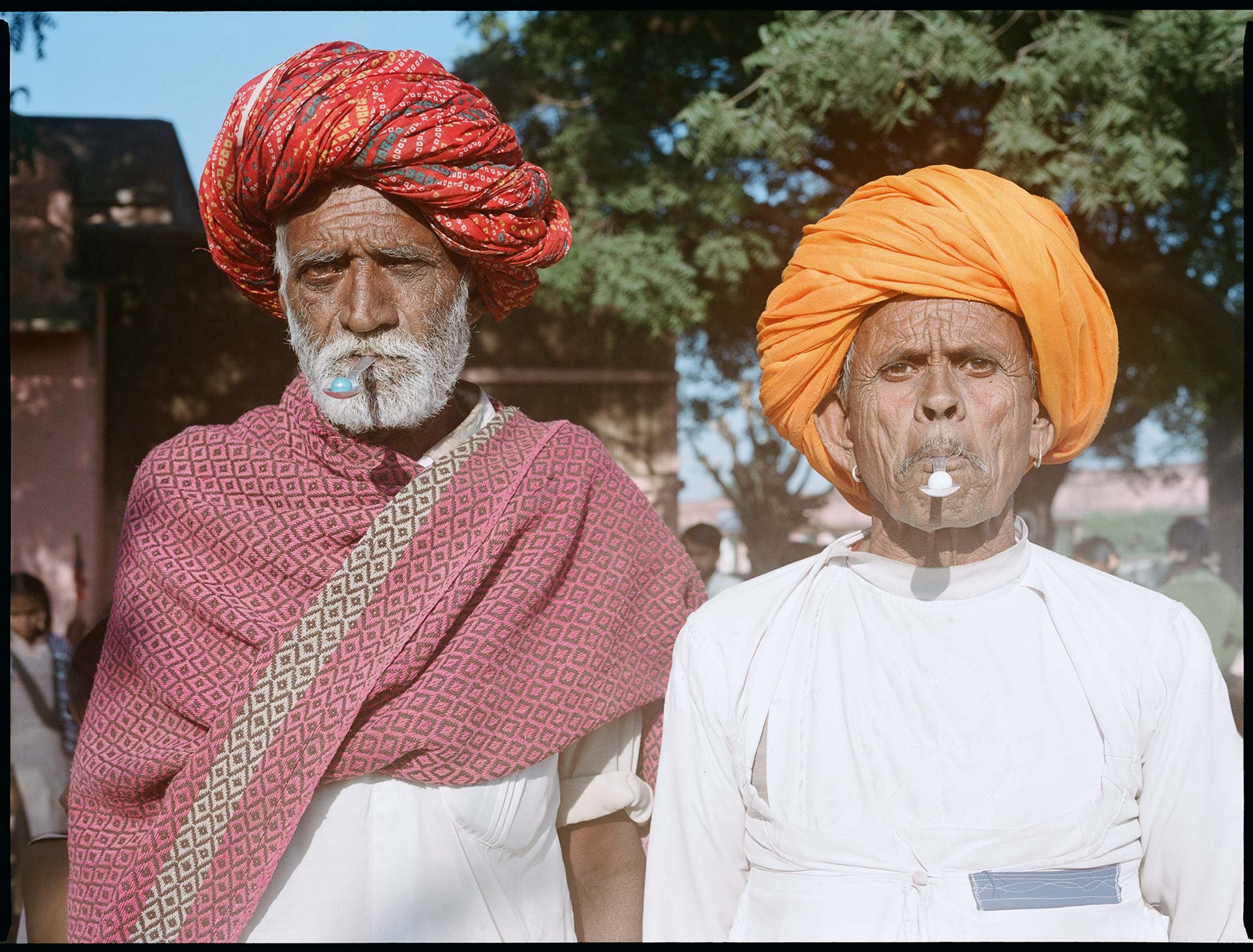
To celebrate the Disability day, the village elders were invited to come support the children with disabilities and be part of a day full of incredible positive messages and fun games.
 Village elder playing the ball and spoon game. Neither age nor disability should be an obstacle for kindness and support. His spirit is young and his heart has the power to heal.
Village elder playing the ball and spoon game. Neither age nor disability should be an obstacle for kindness and support. His spirit is young and his heart has the power to heal.
